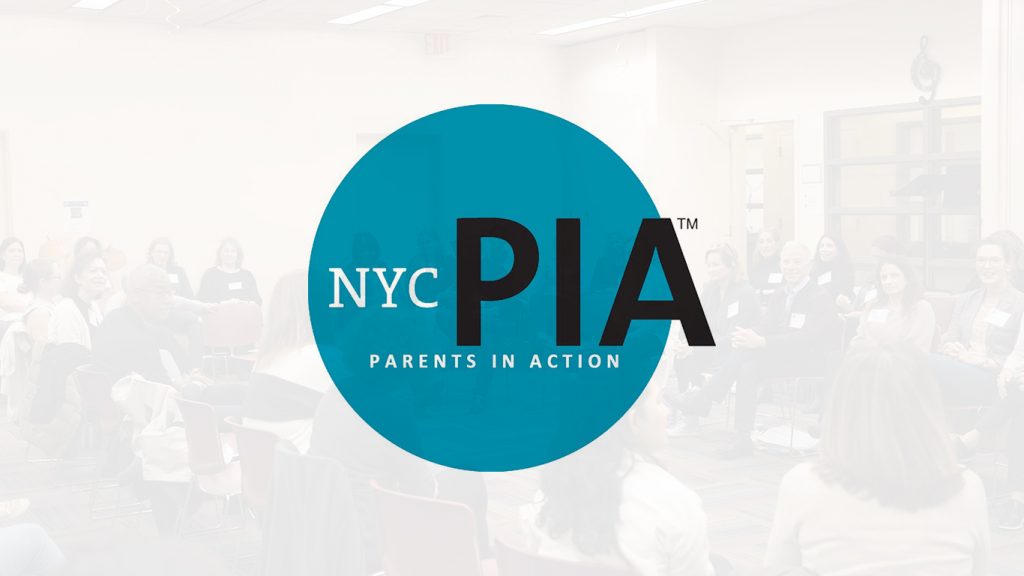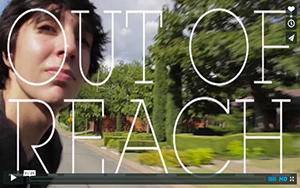“What’s In Your Medicine Cabinet?” by Pamela Awad
On a Tuesday night in October, in an auditorium filled to capacity at the Nightingale-Bamford School, parents viewed “Out of Reach,” a documentary film about prescription drug use among adolescents. Cyrus Stowe, a 17 year-old high school student and filmmaker from Dallas, Texas, produced the 22-minute feature in collaboration with director Tucker Capps (of A&E’s Intervention) and Partnership for Drug Free Kids Medicine Abuse Project.
So what is in your medicine cabinet? Probably many of the same items as those found in the medicine cabinets in Cyrus’ community; leftover prescription pills and over-the- counter medicines – an increasing number of adolescents’ drugs of choice. As Cyrus explained in his film, and the five-person panel afterward confirmed, there’s a real, alarming and growing epidemic of prescription drug abuse among teenagers in communities across the country.
The panelists reacted to the film, explained some of the causes of drug addiction, noted warning signs, and offered advice for concerned parents. Lucy Martin Gianino served as moderator with Dr. Meredith Grossman, a clinical psychologist, speaking alongside Dr. Karen Soren, a pediatrician and Board Certified physician in adolescent medicine, and Marcia Lee Taylor, the Program Director for The Medicine Abuse Project Partnership for Drug-Free Kids.
The most poignant words were personal, spoken by panelists Robin Kellner and Eli K. In soft and measured tones Ms. Kellner told the story of her daughter Zoe, who at 22, died of an accidental drug overdose. “These kids could be anybody’s kids,” she said of those in the film. “My mantra is, realize this can happen to you. Kids can misuse drugs without being addicted; terrible, terrible things can happen to our children, not someone else’s.” Eli, a high school junior, short-haired and forthright, spoke of fighting his addiction to prescription drugs. Of the film he said, “I saw a lot of my friends in those kids’ faces.” Panelists stressed, it’s our children who are abusing prescription drugs, and two-thirds of them get the drugs from their parents, friends or relatives.
Prescription drug abuse is often related to prescription drug use, particularly when drugs are overprescribed or more than the prescribed dose is taken. Eli’s use “stemmed from drugs prescribed, to me. I didn’t understand how much I was taking,” he said, “the first time I understood I was an addict was the summer of sophomore year. I punched a friend in the face and couldn’t remember why I did it.” Dr. Soren agreed that, “very few kids understand they may have a problem.” She discussed the medical field’s attitude toward treating pain over the past twenty-five years. While protocols have changed, prescription drugs are still very available, they’re “out there, [drugs are] totally accessible; old prescriptions, narcotics, pain relievers, Xanax.” Dr. Grossman elaborated: “Kids are often using meds as a way to self-medicate. They think, ‘I feel bad, I’m going to take something and I’ll feel better.’” But, she said, cognitive behavior or “talk” therapy is often as good as Prozac or SSRI’s (anti- anxiety medications) cautioning, “any drug use interferes with a child’s normalization, socialization and cognitive development.”
Prescription drugs are “the most abused drugs for 12 to 13 year olds,” according to Ms. Taylor who sported a blue ribbon denoting addiction recovery awareness. Kids use “what they have access to,” including leftover or stolen prescription pills from a parent, friend or relative. They also tend to mix prescription drugs with other medications. “Combining prescription drugs with something as innocuous as cold medicine can put you over the edge,” she said. Changes in a child’s behavior or school performance can be a warning sign of drug use or abuse; if your child’s usual needs and priorities are replaced with other preferences, if there’s a drastic improvement or deterioration in academic performance or if their school environment is one of high stress, “be aware,” the panel advised. If you’re suspicious, act sooner rather than later. “Prevention is ideal,“ said Ms. Taylor, “but after that, the earlier the intervention the better off you are.”
The most salient advice was to talk, keep talking and talk about everything, including prescription drugs, over the counter medicines and pain relief. Talk to a physician, psychologist, school psychologist or psychiatrist if you’re worried about your child and “insist on speaking to them alone, about your fears,” said Dr. Soren. Seek help finding a mental health care provider and program if you suspect drugs are being used. The website drugfree.org has a series of resources for parents as well as a hotline number: 1-855-DRUGFREE. “Talk to your kids before you think there’s a hint of a problem,” urged Ms. Kellner. Ms. Taylor concurred, “Have sustained, specific conversations with your kids.” “Talk about alcohol and alcohol safety, sexual assault, substance use; start the conversation now,” said Dr. Grossman, and,“ Be careful of what you do at home –modeling is the most powerful form of learning.” The issue may get sticky when the question is “Did you ever use anything?” but the panel agreed honesty is the most prudent strategy. “Say, I did and I regret it, here’s why I want you to make a different, better decision,” advised Ms. Taylor. The words with the greatest resonance were the grown child’s: “ Be clear, speak plainly, speak the truth,” said Eli. “Say [to your child] listen, there are drugs out there, there’s OxyContin, there’s Klonopin, these are the things that I understand are available to you. I’m concerned, they can kill you.” Finally, remember the advice about putting a lock on the door of your liquor cabinet? Lock the medicine cabinet too. It seems the best prescription pills are the ones not taken by your children.
Dr. Meredith Grossman, Ph.D. is a clinical psychologist and Assistant Professor of Psychiatry, Weill Cornell Medical College and Professional Associate (Psychology), New York Presbyterian Hospital
Eli K. is a high school student and Member of Road Recovery, a program that offers compassionate counseling to young people battling addiction and other adversities by working with entertainment professionals to create live concerts and studio recordings
Robin Kellner is a Parent Advocate and founder of the Zoe Story’s Fund
Marica Lee Taylor is the SVP, Program Director of The Medicine Abuse Project Partnership for Drug-Free Kids
Karen Soren, M.D., is an Associate Professor of Pediatrics and Family Health, Columbia University Medical Center and Director, Adolescent Medicine, New York-Presbyterian Morgan Stanley’s Children Hospital


